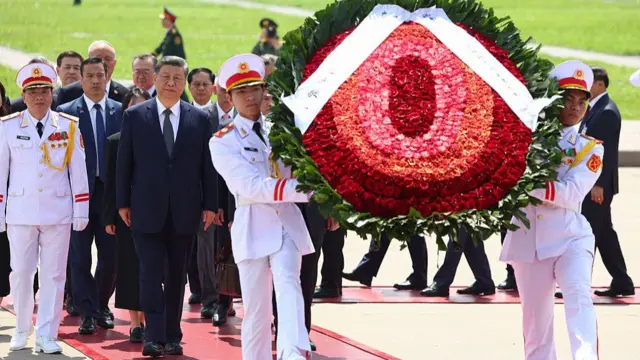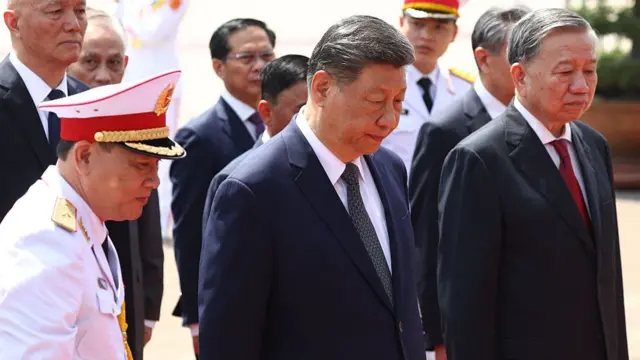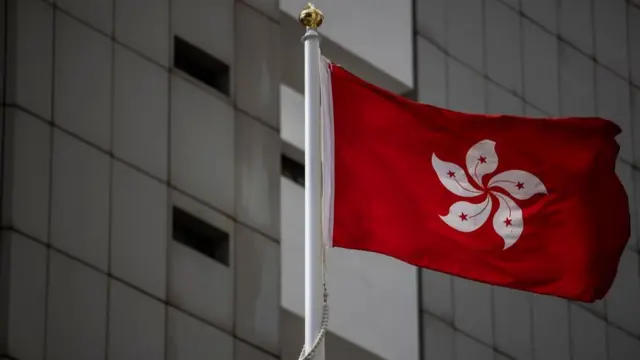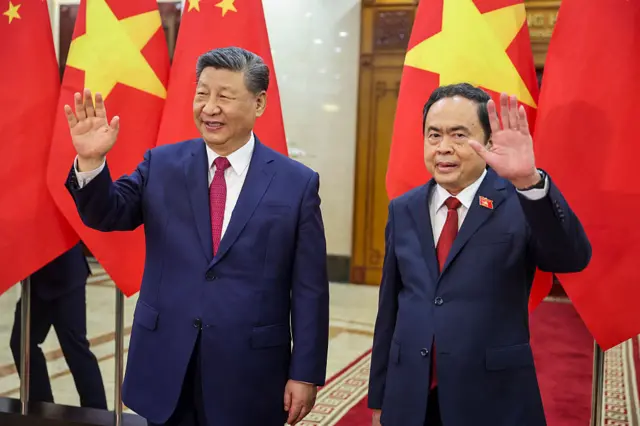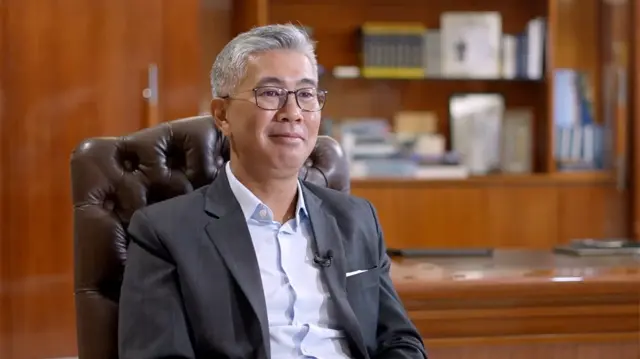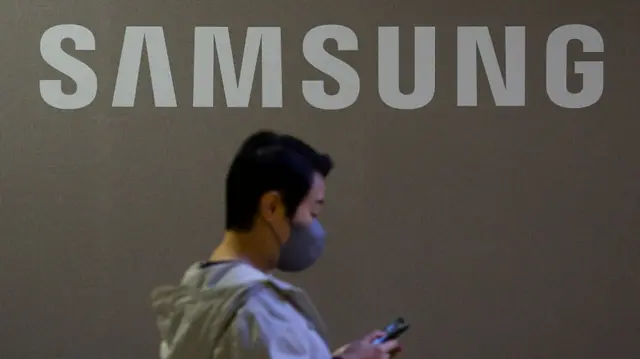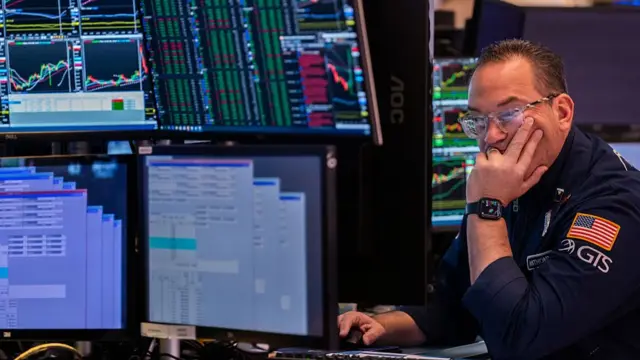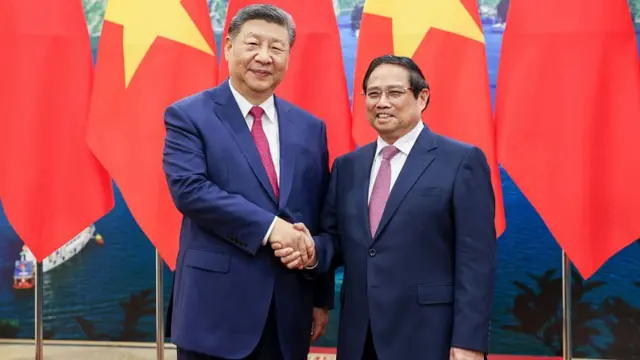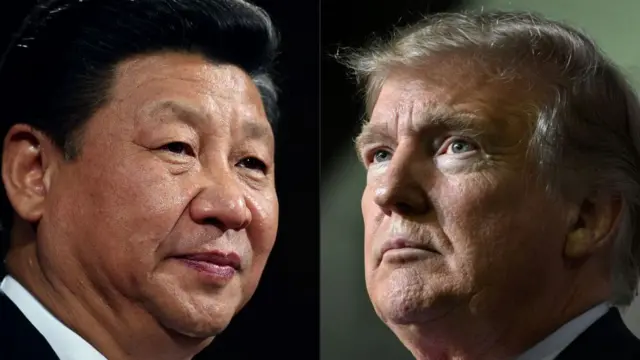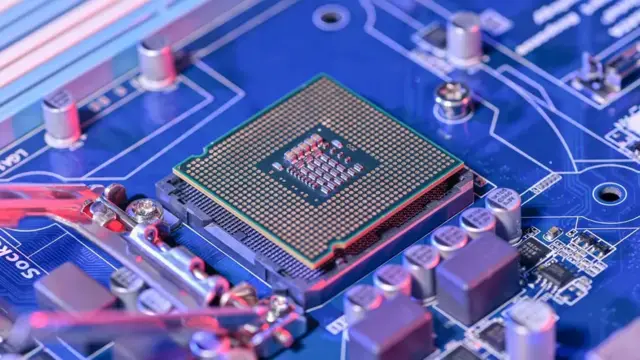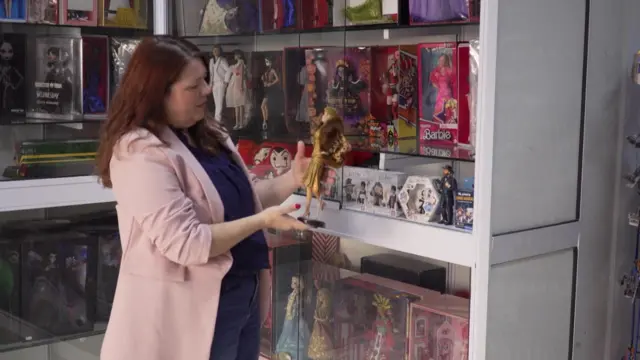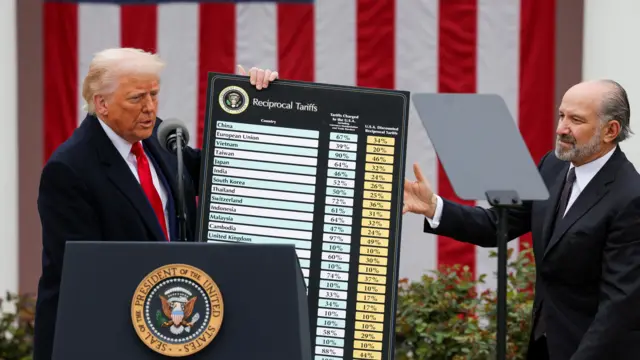'Good chance' of US-UK trade deal, says Vancepublished at 06:12 British Summer Time 15 April
US Vice President JD Vance says there is a "good chance" a trade deal could be reached with the UK, as the dust continues to settle from America's global trade shakeup.
"We're certainly working very hard with Keir Starmer's government," Vance said in an interview on Monday with the UnHerd website.
The global stock market has been rocked by turbulence since 2 April, after President Donald Trump announced sweeping tariffs on nearly every country.
The unprecedented US trade policy manoeuvre included a 10% "baseline" tariff on all imports from the UK and other long-standing trade partners.
 Image source, Getty Images
Image source, Getty Images